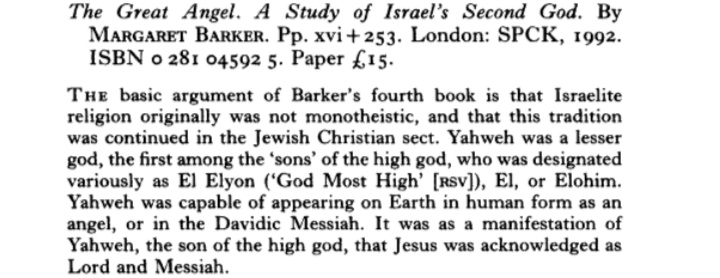As far back as Exodus, God told the Jews not to give YHVH's angel/agent a hard time because "my name is in/upon him":
[Exo 23:21 KJV] (21) Beware of him, and obey his voice, provoke him not; for he will not pardon your transgressions: for my name is in him.
הִשָּׁמֶר מִפָּנָיו וּשְׁמַע בְּקֹלֹו אַל־תַּמֵּר בֹּו כִּי לֹא יִשָּׂא לְפִשְׁעֲכֶם כִּי שְׁמִי בְּקִרְבֹּֽו׃
The Greek has "UPON him":
23:21 πρόσεχε σεαυτῷ καὶ εἰσάκουε αὐτοῦ καὶ μὴ ἀπείθει αὐτῷ οὐ γὰρ μὴ ὑποστείληταί σε τὸ γὰρ ὄνομά μού ἐστιν ἐπ᾽ αὐτῷ
This is remarkable and an incredibly important verse for understanding why there appears to be an invisible and a visible YHVH throughout the OT.
But in the NT we are told repeatedly that Jesus "inherits" God's name because of his obedience:
[Heb 1 NWT] 1 Long ago God spoke to our forefathers by means of the prophets on many occasions and in many ways. 2 Now at the end of these days he has spoken to us by means of a Son, whom he appointed heir of all things, and through whom he made the systems of things. 3 He is the reflection of God’s glory and the exact representation of his very being, and he sustains all things by the word of his power. And after he had made a purification for our sins, he sat down at the right hand of the Majesty on high. 4 So he has become better than the angels to the extent that he has inherited a name more excellent than theirs. 5 For example, to which one of the angels did God ever say: “You are my son; today I have become your father”? And again: “I will become his father, and he will become my son”? 6 But when he again brings his Firstborn into the inhabited earth, he says: “And let all of God’s angels do obeisance to him.” 7 Also, he says about the angels: “He makes his angels spirits, and his ministers a flame of fire.” 8 But about the Son, he says: “God is your throne forever and ever, and the scepter of your Kingdom is the scepter of uprightness. 9 You loved righteousness, and you hated lawlessness. That is why God, your God, anointed you with the oil of exultation more than your companions.
Since God had already put his name into his angel/agent, is it possible that what God is speaking about in the NT is MORE than even that... God bestows his covenant name upon his only begotten son and heir (though there are many co-heirs) such that God is now no longer YHVH himself but is "the God and Father of our YHVH, Jesus Christ"?
[Phl 2:9-11 CSB] (9) For this reason God highly exalted him and gave him the name that is above every name, (10) so that at the name of Jesus every knee will bow -- in heaven and on earth and under the earth -- (11) and every tongue will confess that Jesus Christ is Lord, to the glory of God the Father.
It seems to me that we should certainly see Zechariah 14:9 as being behind this event:
[Zec 14:9 ASV] And Jehovah shall be King over all the earth: in that day shall Jehovah be one, and his name one.
[Zec 14:9 LXX] καὶ ἔσται κύριος εἰς βασιλέα ἐπὶ πᾶσαν τὴν γῆν ἐν τῇ ἡμέρᾳ ἐκείνῃ ἔσται κύριος εἷς καὶ τὸ ὄνομα αὐτοῦ ἕν
[Psalm 97:1 NWT] Jehovah has become King! Let the earth be joyful. Let the many islands rejoice.
[Rahlfs LXX 96:1] τῷ Δαυιδ ὅτε ἡ γῆ αὐτοῦ καθίσταται ὁ κύριος ἐβασίλευσεν ἀγαλλιάσθω ἡ γῆ εὐφρανθήτωσαν νῆσοι πολλαί
Psalm 97/96LXX Brenton: 1 For David, when his land is established. The Lord reigns, let the earth exult, let many islands rejoice. 2 Cloud, and darkness are round about him; righteousness and judgment are the establishment of his throne. 3 Fire shall go before him, and burn up his enemies round about. 4 His lightnings appeared to the world; the earth saw, and trembled. 5 The mountains melted like wax at the presence of the Lord, at the presence of the Lord of the whole earth. 6 The heavens have declared his righteousness, and all the people have seen his glory. 7 Let all that worship graven images be ashamed, who boast of their idols; worship him, all ye his angels. 8 Sion heard and rejoiced; and the daughters of Judea exulted, because of thy judgments, O Lord. 9 For thou art Lord most high over all the earth; thou art greatly exalted above all gods. 10 Ye that love the Lord, hate evil; the Lord preserves the souls of his saints; he shall deliver them from the hand of sinners. 11 Light is sprung up for the righteous, and gladness for the upright in heart. 12 Rejoice in the Lord, ye righteous; and give thanks for a remembrance of his holiness.
Brenton Septuagint Translation, 1884. Versification mapped to KJV for coordination with other Old Testament Bible texts.
Is it possible that the reason that God is no longer known by his covenant name (YHVH) is that he did not share that name with Jesus but rather bequeathed it to Jesus as his inheritance? In other words, since Philippians 2 there is only one YHVH and that is Jesus. Now God is known as "God and Father". Jesus is now YHVH:
[Eph 4:5-6 KJV] (5) One Lord [IE: "one KURIOS" - or possibly, "one YHVH"], one faith, one baptism,
Of course, the Father is "the God and Father of all" including his Son of unique origin, Jesus:
(6) One God and Father of all, who is above all, and through all, and in you all.
